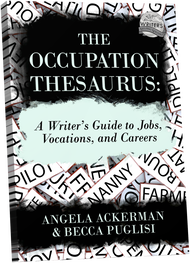
The first 14% of the book provides a comprehensive and considerably in-depth overview of the importance of characters’ occupations and, among other aspects, the ways in which to use those occupations to create tension and conflict and to reveal the characters’ personalities and motives, without having to always tell readers these things.
Excellent examples are given to help stimulate creativity and encourage manipulations of occupations based on the author’s needs in a given story. There are lots of balls a person can run with in this first section.
While a person might be able to scour the internet via endless searching and blog-visiting to piece together the thorough and engaging material provided in this section of the book, the question that comes to mind is: why bother? So much thought-provoking and detailed information packaged in one easy reference is too empowering to pass up for more time-consuming alternatives.
Moving on into the exciting part leads to the remainder of the book. One key reason why this section is exciting is because of all the specifics it provides. Essential elements for each occupation include: “necessary training,” “useful skills, talents or abilities,” “helpful characters or traits,” and four or five additional topics all geared to help authors integrate occupation into their stories in a manner that adds credibility. Whether the character is a glassblower or a secret-service agent, there’s an applicable section on such emotional considerations as “sources of friction,” “how the occupation might impact the character’s needs” and “twisting the fictional stereotypes.”
A second key reason why this section is exciting is because a person can scroll through the various occupations and all the related content and definitely be inspired with ways to expand upon what has already been given.
Moreover, if authors have an occupation in mind that’s not listed, there’s a blank template included at the end of the thesaurus section. Authors can use the template and write out that occupation in the same manner the others are presented so they’ll have a well-rounded source from which to work.
The book states that “the information in this thesaurus was gathered from different sources, and many of the entries were vetted by people with experience in that field.” At the same time, authors are encouraged to take into consideration how regional differences can and will impact certain jobs.
Quite frankly, in a day and time, when authors are seeking to write a steady stream of books to meet their readers’ demand for a steady stream of books to read, a tool—and yes, it is a tool—a tool like The Occupation Thesaurus is a must-have reference source.
The book is available right now at Amazon and other major retailers.
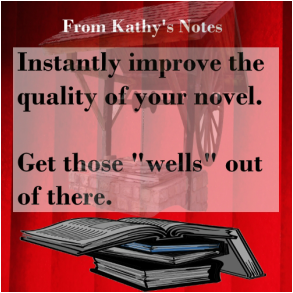
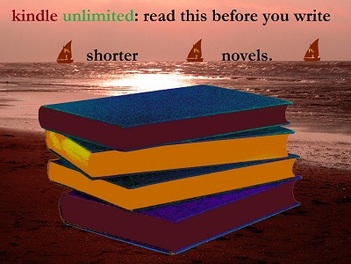

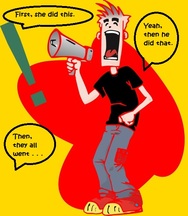
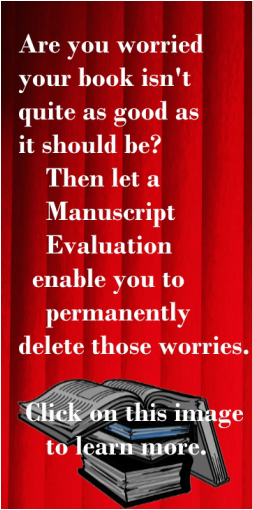



 RSS Feed
RSS Feed